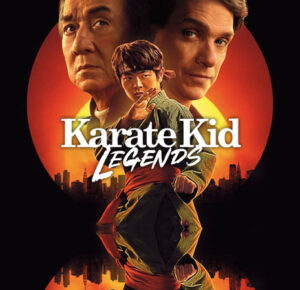Director: Sunny Luk
Co-director: Longman Leung
Cast: Jacky Cheung, Nick Cheung, Chang Chen, Shawn Yue, Janice Man, Wang Xue Qi, Ji Jin-Hee, Choi Si-Won, Yoon Jin-Yi, Lee Tae-Ran, Kim Hae-Sook, Mike Leeder
Running Time: 119 min.
By Paul Bramhall
Directors Sunny Luk and Longman Leung team up once more for their sophomore effort, Helios. Looking to match the success of their surprisingly taut 2012 bureaucratic thriller Cold War, here they’re once again also behind the script, and have brought along the busiest action director in Hong Kong, Chin Kar Lok, for the ride.
As with any second feature, while Cold War focused very much on Hong Kong, with Helios Luk and Leung have made the decision to broaden their scope, creating a movie which takes place across Asia. Specifically focusing on a deadly weapon that was developed in Korea, the result is that Helios comes with an A-grade cast of both Hong Kong and Korean talent. While Cold War featured two of Hong Kong’s ‘Four Heavenly Kings’ in the form of Aaron Kwok and Andy Lau, Helios gives us another thanks to the casting of Jacky Cheung. He’s ably backed up by the always reliable Nick Cheung and Shawn Yue. For those who are wondering, yes Helios earns immediate goodwill for being a Hong Kong action thriller made post-2010 which doesn’t feature either Louis Koo or Gordon Lam.
On the Korean side things are headed by Ji Jin-hee, most recognizable from the 2006 blood soaked revenge thriller Soo. K-pop group ‘Super Junior’ member Choi Si-won also features, in his third Chinese production after starring alongside Andy Lau in Battle of Wits, and more recently Jackie Chan in Dragon Blade. Yoon Jin-yi, Lee Tae-ran, and Kim Hae-sook round off the Korean contingent. Throw in turns from Taiwan’s Chang Chen, Mainland star Wang Xue Qi, and British born Hong Kong resident Mike Leeder (playing twins no less), and you have what can definitely be described as a diverse cast.
The plot concerns an attempt to retrieve a missing weapon that was being transported on a commercial plane which crashed. The smallest nuclear device ever created, the DC8 was developed in Korea, and with the news that the device is somewhere in Hong Kong, the Blue House (the Korean version of the White House) dispatches two of its agents to retrieve the weapon. The agents are played by Jin-hee and Si-won, and once they get to Hong Kong they team up with a pair of cops played by Nick Cheung and Yue. The team is soon joined by a physics professor, who acts as an advisor to the team, played by Jackie Cheung, a Korean contact in Hong Kong played by Jin-yi, and an official from the Mainland played by Xue Qi.
Perhaps sensing that the audience would be questioning how everyone can understand each other, early on the characters are given a (what I believe is completely fictitious) device which comes in the form of an ear piece, meaning anything that the Koreans say is immediately translated to Cantonese, and vice versa. The upside of course is that every actor gets to speak in their native tongue, and there’s no awkward line delivery.
Despite the diverse cast, Helios initially feels more like a Hong Kong movie than any of the territories most recent productions. Throughout proceedings the Mainland officials are treated like hindrances and getting in the way of what’s best for Hong Kong. While these swipes at the Mainland can still be found in Hong Kong movies, they’re often very subtle, or else the movie wouldn’t be likely to get past the Chinese government censorship board. However in Helios, the swipes are blatant, with Jackie Cheung at one point telling Nick Cheung to “Remember you’re from Hong Kong.”
Also just like the Hong Kong action movies of old, events quickly buildup to a suitably impressive action scene. Within the first 30 minutes intel is received that the DC8 is going to change hands in a parking complex, and soon every character of any significance descends on the building in what becomes an epic shootout. There’s a joyful amount of collateral damage, as bullets and grenades are utilized in liberal doses, sending cars flying through the air and creating an exciting sense of danger. Surprisingly though, none of the other action scenes which come after are able to match the sense of immediacy and chaos that the parking complex shootout delivers, and the middle of Helios becomes exposition heavy.
The editing does a good job of trying to disguise it. The constant presence of a soundtrack building up, the glossy camera angles, and the promise that something always seems about to go down. But at some point you realize that almost 40 minutes have passed with nothing really happening except for characters talking. It’s not that the dialogue is particularly bad, if anything Helios delivers a well put together script and characters. However ultimately the editing style ends up betraying itself, as a number of scenes fade out in succession, with the camera slowly zooming onto a characters face as the accompanying dramatic music reaches a crescendo. It all begins to feel a little bit like an extended soap opera omnibus.
Thankfully proceedings get back on track as the finale seems to be in reach. There’s a fantastic foot chase between Nick Cheung and newcomer Janice Man, which is a credit to Chin Kar Lok’s action direction. While Man cuts a slight figure, she convincingly lays a beat down on Cheung, complete with some nice use of MMA and grappling, and doesn’t shy away from being thrown around herself. While her character isn’t a major one, playing the ‘bodyguard’ to Chang Chen’s weapons dealer, this scene alone was enough to make me wish her character had been more developed.
Jin-hee and Si-won also find themselves involved in a shootout at a container depot. At one point, seeing both of them decked out in suits, Jin-hee with a semi-automatic rifle and Si-won with a shotgun, it almost felt like an updated version of John Woo’s The Killer. However it’s soon revealed that all of these action scenes are part of serving a bigger purpose, and tragically it relates back to the Mainland issue. Having been referred to as a hindrance throughout, the action scenes that should rightfully be the movies finale, actually turn out to be plot devices that neutralize all of the Hong Kong and Korean characters.
Thanks to the action direction of Kar Lok, Helios succeeds in picking up steam after a middle half that sagged under the amount of dialogue. However, with the realization that there’s still an additional 15 minutes left after all is said and done, the movie ultimately wheeze’s to the end of its 2 hour runtime. What’s more frustrating is, the main reason the final protracted 15 minutes are there, is to show how efficient the officials from Beijing are after all, and that they know what’s best for Hong Kong. I guess it could be taken as the price of being so provocative towards the Mainland earlier on. Thankfully, things end on a nice twist that leaves things open for a sequel. Although if it’s a sequel which involves the officials from Beijing saving everyone, I’m not sure I’d be interested to see it.
All in all there’s an effective action thriller contained within the runtime of Helios. It has relatable characters, exciting action sequences, and a solid premise. In many ways I look at it like a delicious looking piece of steak, the only issue is that it still has all the fat on it. Cut the fat away, and you’re going to be a happy diner. Helios is that steak, and the steps it needed to take to ensure it got past the Chinese censors are the fat. Unfortunately though, some fat is here to say.
Paul Bramhall’s Rating: 6.5/10























6 Comments